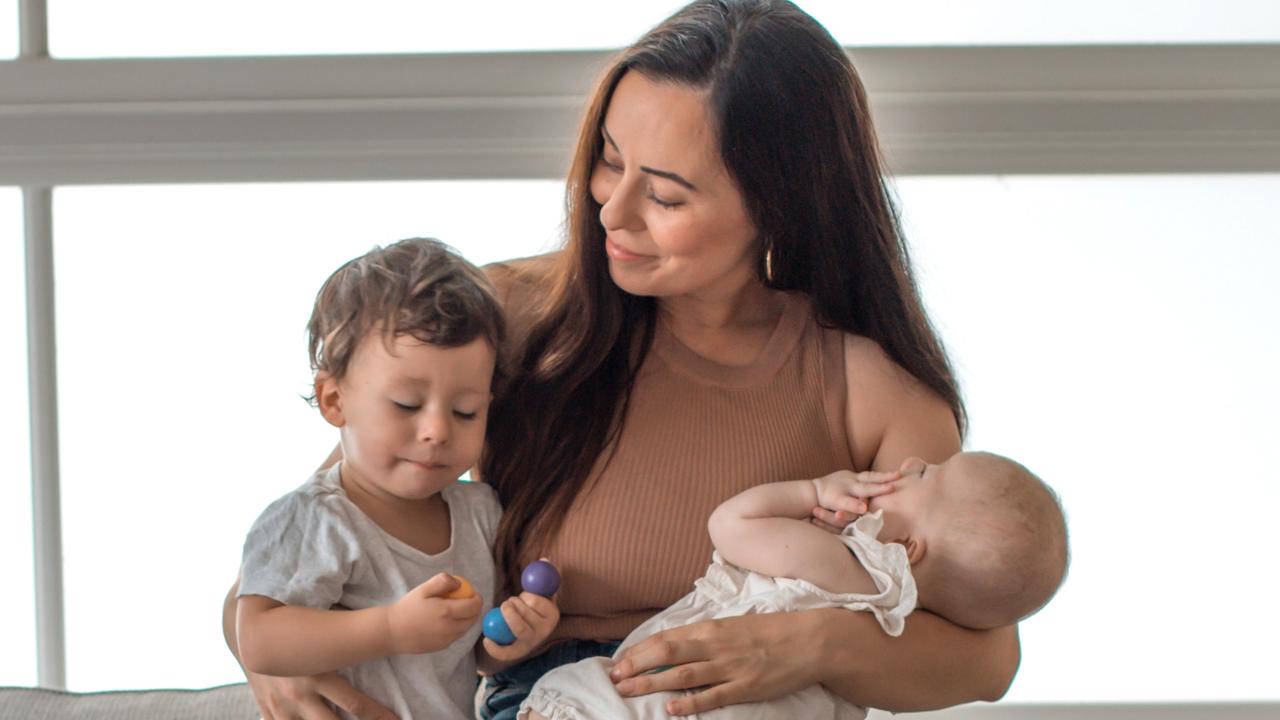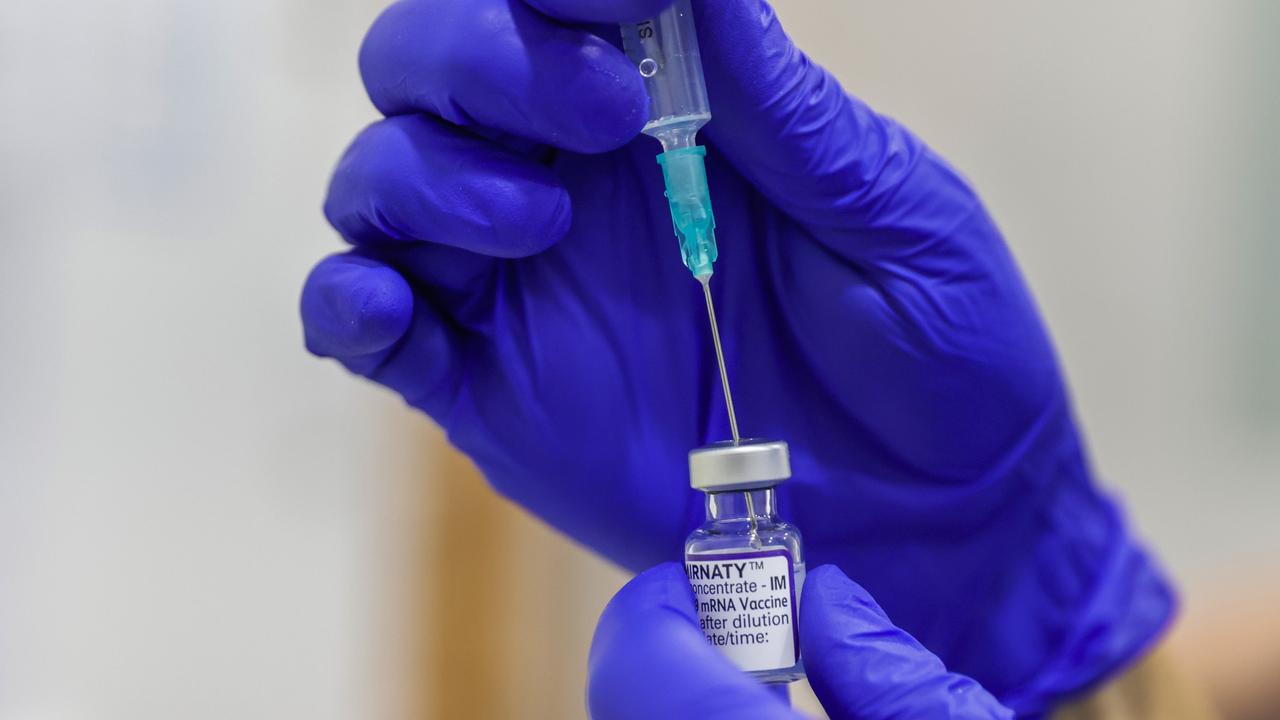Babies and children expected to struggle as Covid restrictions ease
Little Leo Crandell knows his mum, his dad and life inside their four walls. He is part of the Covid generation — stressed babies and children who need to be reintroduced to the world.
NSW Coronavirus News
Don't miss out on the headlines from NSW Coronavirus News. Followed categories will be added to My News.
Leo Crandell is a little more unsure about the big, wide world than your average bub.
The four-month-old knows his mum, his dad, and life inside their four walls.
“Leo hasn’t really been in contact with strangers yet, but even family members who have recently been able to see him, since being double-vaxxed, may as well be strangers as he doesn’t really know who they are,” Kellie Crandell said of her firstborn.
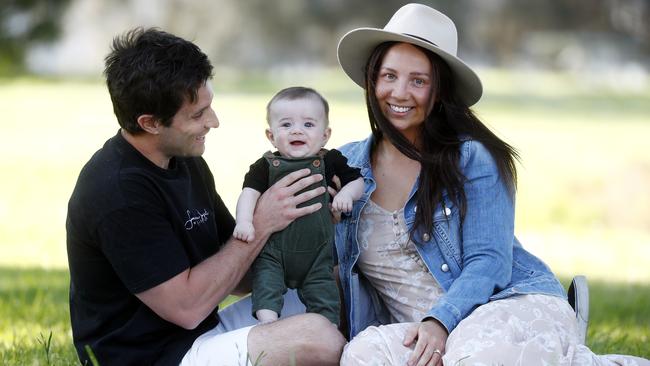
“Leo met our family and friends when he was a week old, a super-fresh newborn, and then we pretty much went into lockdown straight after.
“At first he’s very hesitant and unsure.”
My family has realised Leo needs space first for him to warm up to them, otherwise his little bottom lip will go.”
Leo is not alone – but his parents have nothing to fear, according to Professor of Child Development Marc de Rosnay, from Early Start.
“If babies are in a very curtailed environment because of necessity, they become a little bit less flexible in how equipped they are to engage with new people,” Prof de Rosnay said.
“It doesn’t follow on that they will be like that in the future as teens or adults.”
It’s not just young babies missing out on human interaction who feel the effects of lockdown.
Kids of all ages become “a bit rusty”.
“It’s generally not good to coop up children too much and we have all been forced to do that,” Prof de Rosnay said.
“It results in children being less flexible.
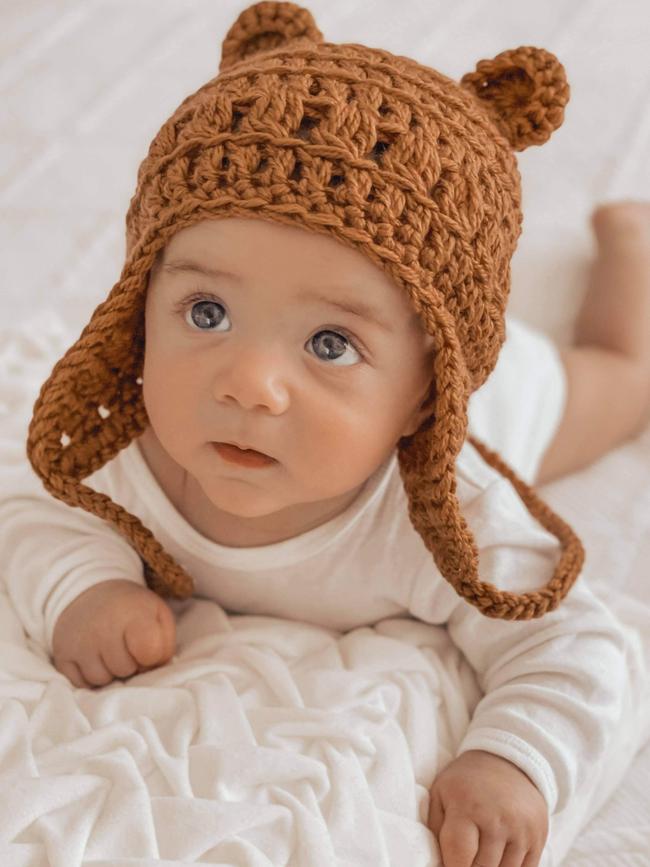
“My five-year-old is less flexible at the park, for example. She is less able to adapt to other children, which she was really good at just a year ago, and she gets frustrated more easily.
“Now, she is interacting with her parents and older siblings, who are very sensitive to her needs, unlike other children her own age who have their own agenda.
“They want to be heard and do their own thing.”
“Kids are a bit socially and emotionally rusty and we are going to see that play out in lots of different places.”
The University of Wollongong expert said the solution for parents was to be patient and “not be afraid of bringing them into more interactions, but to not force them into it, especially infants”.
“If your baby is reluctant to engage, the best thing to do is to stop, take a deep breath and just be comfortable in the situation and give the baby time to relax and take in the information and see from you that it’s a situation for exploration,” Prof de Rosnay said.
He said it was important that parents continued to provide babies with stimulation and new experiences, even if there were some tears.
“Don’t stop giving babies, and young children, opportunities to expand their social engagement, but be patient and supportive,” Prof de Rosnay said.
“Kids pick up on our anxieties, so take a long view and try not to get frustrated.
“Eventually even the most fearful babies become curious and start to explore and build confidence when they feel secure.”
PUSH TO BURST BUDDY BUBBLE STRESS FOR KIDS
While the three-child bubble was meant to be a school holiday reprieve for locked down NSW youngsters, for many the playground politics has only made things worse — heightening social anxiety and exacerbating the loneliness of isolation if not included.
Not everyone is being invited into a bubble, and picking certain friends while having to leave others out can cause added pressure at an already difficult time, says Sydney social scientist and mother of two Ali Walker.
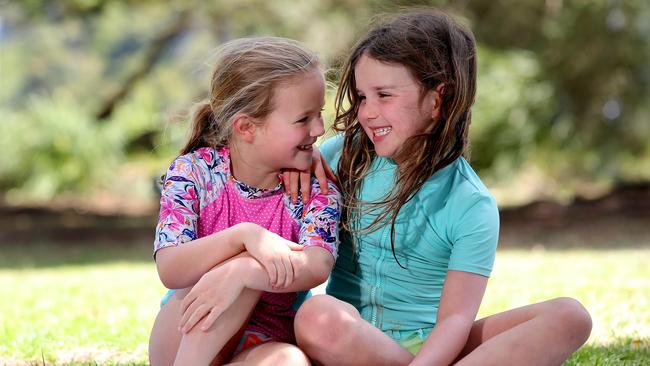
Social dynamics and our sense of belonging are the basis for our wellbeing,” Dr Walker said. “Asking children to choose just three friends adds social anxiety to lockdown anxiety.”
While Dr Walker said she was heartened by the NSW government’s decision to allow children to see their friends, it was the bubble of three that concerned parents like her – and the lack of potential enforcement which made it an unnecessary burden for children and their parents.
“Who decides on this bubble? The kids? They’re just emerging out of social isolation and this is a lot of pressure,” she said.
“And can you imagine the dynamics of parents trying to arrange this bubble? And what happens to the children that might want to be in one person’s bubble, but that person is already in another one? My recommendation is just let children see their friends outdoors, whoever they may be.”
Psychotherapist Lissy Abrahams said parents should be explaining the restraints with their children, emphasising that it wasn’t their fault if they weren’t chosen by a buddy — it was simply another problematic effect of the pandemic.
“If we think about what’s already been happening for children up to this point, we’ve asked them to stretch their capacities for resilience as much as we can,” said the mother of two from Sydney-based therapy clinic, Heath Group Practice.
“So while it looks like a gift for many children that they get to have their buddy and play, for the children who are already at the limit of their resilience and have struggled, have felt lonely, anxious, depressed – these kinds of experiences can just compound it. For those children, it will absolutely intensify what they’ve been going through already.”

Roseville mother of three Monica Huxley said it was hard to navigate the buddy bubble for children Polly, 6, James, 8 and Charles, 10.
“You don’t want to leave anyone out and you don’t want your kids to be left out,” she said. “They just want to play with their friends, they shouldn’t have to worry about picking play dates or having that added layer of stress if they’re not included.
“It takes away from the whole point of being kids and just having fun.”
Got a news tip? Email weekendtele@news.com.au

